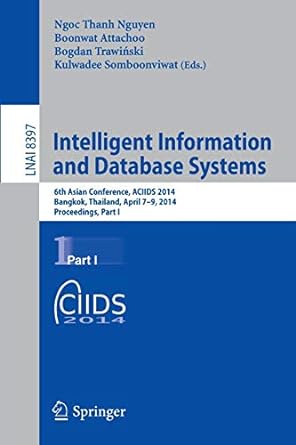Answered step by step
Verified Expert Solution
Question
1 Approved Answer
Develop a simulator program that will enable you to compare and contrast the operation of various page replacement strategies discussed in class ( plus an
Develop a simulator program that will enable you to compare and contrast the operation of various page replacement strategies discussed in class plus an additional page replacement algorithm discussed here For a given page reference string, your program will output the number of page faults for a given page replacement algorithm. The name of your executable must be "simpager".
Input to your program will be from standard input. There is to be no "user prompts" in your program. Program output will be to standard output. Your program must follow a standardized input format. The first line is the page reference string. Each number in the page reference string is separated by whitespace and is terminated by a new line. The page reference string is on one and only one line. The second line is the number of frames allocated to a specific process. The remaining lines will be string mnemonics; one for each page replacement algorithm.
Output from your program will be the following. Echo the page reference string up to page references per line. Echo the number of frames allocated to the process. Print the page replacement algorithm "mnemonic" and the number of page faults. Although your program reads from standard input and writes to standard output, it is suggested that you have several program data files that you can redirect standard input and thus have your program read.
Example Input:
FIFO
LRU
Example Output:
simpager testcasetxt
Page Reference String:
Number of Frames:
FIFO:
LRU:
The page replacement algorithms and their respective mnemonics to be implemented are the following:
FIFO First in first out page replacement. See text for description.
LRU Least recently used page replacement See text for description.
OPT Optimal page replacement. See text for description.
RAND Random page replacement. This is an easy to implement, lowoverhead page replacement strategy. Under this strategy, each page in main memory has an equal likelihood of being selected for replacement. One problem with RAND is that it may accidentally select as the next page to replace the page that will be referenced next. A benefit of RAND is that it makes replacement decisions quickly and fairly. However, because of this "hitormiss" approach, RAND is rarely used in practice.
Step by Step Solution
There are 3 Steps involved in it
Step: 1

Get Instant Access to Expert-Tailored Solutions
See step-by-step solutions with expert insights and AI powered tools for academic success
Step: 2

Step: 3

Ace Your Homework with AI
Get the answers you need in no time with our AI-driven, step-by-step assistance
Get Started


